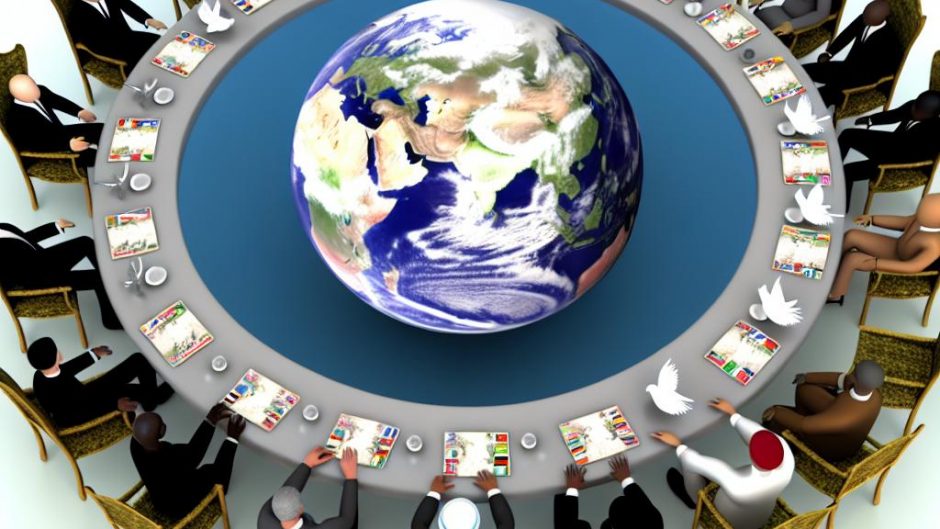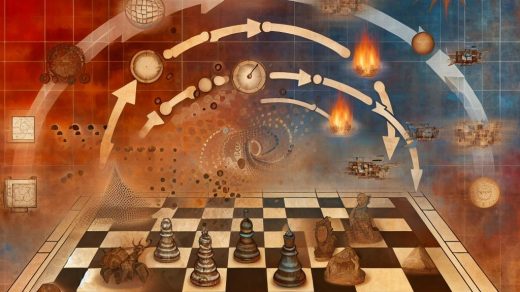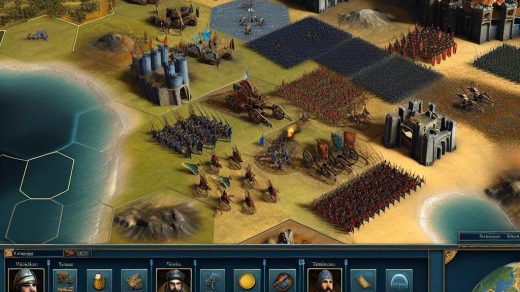The Role of Diplomacy in World Domination Mode
In strategic simulations, such as world domination games, diplomacy plays a vital role. These games often simulate the complexities of international relations, demonstrating that military might alone is insufficient for global dominance. Diplomacy is crucial in navigating relationships, forming alliances, and preventing conflicts that can otherwise destabilize a player’s strategy.
The Strategic Importance of Diplomacy
Diplomacy provides players with tools to manage interactions with other nations or players. This aspect of the game often involves negotiation, treaty formation, and collaboration, allowing for a more balanced and dynamic approach to conquering territories. Through diplomacy, players can expand influence without resorting to warfare, fostering a more sustainable and less costly expansion process.
In the absence of diplomacy, players may find themselves relying heavily on military strategies, which often come with significant risks and costs. Warfare can drain resources quickly, weaken a player’s defense, and create vulnerabilities that other players might exploit. By employing diplomatic strategies, players can conserve resources for critical moments when military action may be unavoidable, ensuring that they remain strong and viable competitors throughout the game.
Allying for Strength
Forming alliances is a strategic diplomatic move that can offer significant advantages. By creating coalitions, players can gain military support and share resources, strengthening their position in the game. Alliances can deter aggressive actions from opponents, as the ramifications of attacking an ally network can outweigh the benefits.
Alliances also provide players with opportunities to learn and adapt by observing the strategies and tactics of their partners. This collaborative environment fosters innovation and improves strategic acumen. By pooling knowledge and capabilities, allied players can develop sophisticated strategies and execute complex maneuvers that might be difficult to achieve in isolation.
In addition, alliances can serve as a forum for strategic dialogue and coordination, where players can discuss and plan their next moves, ensuring that their efforts are synergized for maximal impact. Such cooperation helps players establish and maintain a powerful presence in the game, leveraging their combined strengths to achieve mutual and individual objectives.
Managing Conflicts
Effective diplomacy can also mitigate conflicts. By engaging in diplomatic dialogues and crafting agreements, players can resolve disputes amicably without depleting resources in a prolonged military campaign. Furthermore, maintaining positive diplomatic relations can prevent the formation of hostile coalitions against a player, thus securing a more stable playing environment.
Negotiation tactics, such as offering compromises, concessions, or trade-offs, enable players to navigate complex scenarios without escalating into full-blown conflicts. These tactics require players to understand the interests and motivations of others, discerning what is negotiable and what is not, which enhances analytical thinking and decision-making skills.
The ability to deescalate tensions and reach mutually satisfactory agreements maintains stability and prevents disruption to a player’s long-term strategy. Furthermore, managing conflicts through diplomacy presents an opportunity to build trust with other players, which can be invaluable in future interactions and negotiations.
The Balance of Power
Ultimately, diplomacy helps maintain a balance of power. In world domination mode, unchecked aggression can lead to isolation and counterproductive outcomes. Diplomacy ensures that players can manage both friend and foe relationships, allowing for a well-rounded approach to global supremacy.
At its core, diplomacy is about maintaining an equilibrium where no single player becomes overly dominant. By ensuring that all players have a vested interest in stability, diplomacy creates a game environment where strategic maneuvering takes precedence over brute force. Players must constantly assess power dynamics and leverage diplomatic interactions to keep potential threats in check while advancing their agendas.
Additionally, diplomacy encourages players to develop flexible strategies. As alliances shift and new challenges arise, players must be agile and adapt to changing circumstances, which adds depth and complexity to gameplay. Such strategizing keeps players engaged, as every decision can have far-reaching consequences on their path to domination.
For those interested in exploring strategic gameplay mechanics further, resources such as Game Studies provide valuable insights into the dynamics of these simulations, offering perspectives that delve deeper into the art and science of strategic decision-making.
In conclusion, diplomacy is not merely an optional element in world domination games but a key strategic pillar that complements military strategy. It showcases the intricate nature of global relations and the necessity for players to think beyond conquest, leveraging soft power to achieve ultimate victory.
By effectively employing diplomacy, players not only improve their chances of success but also enhance their overall experience, as diplomatic engagements add layers of intrigue, strategy, and excitement. As these simulations continue to evolve, the role of diplomacy will remain indispensable, providing players with opportunities to demonstrate their prowess in negotiation, alliance-building, and conflict resolution, thereby mastering the art of world domination.
This article was last updated on: July 20, 2025






Recent Comments